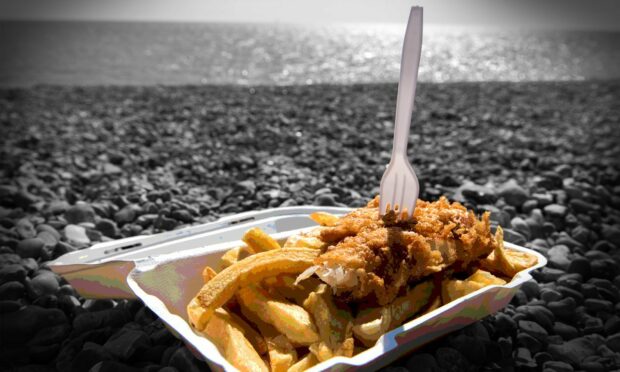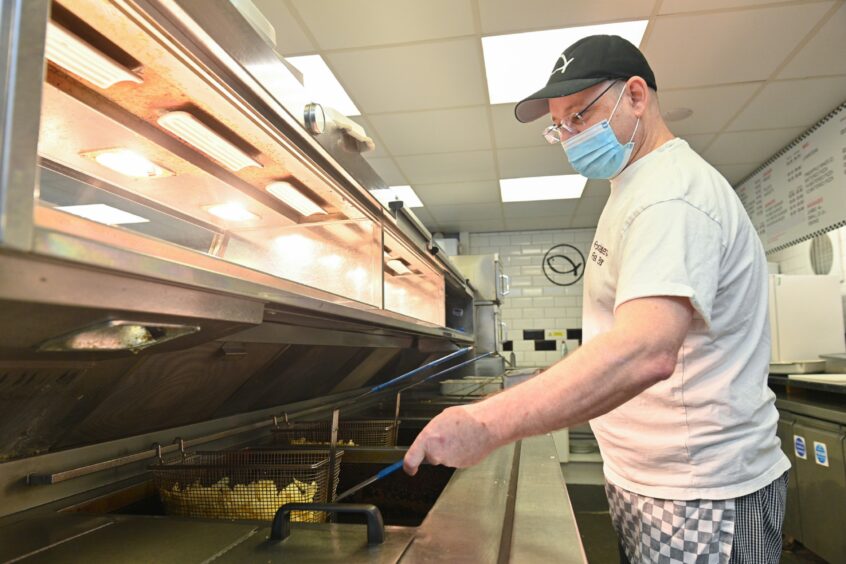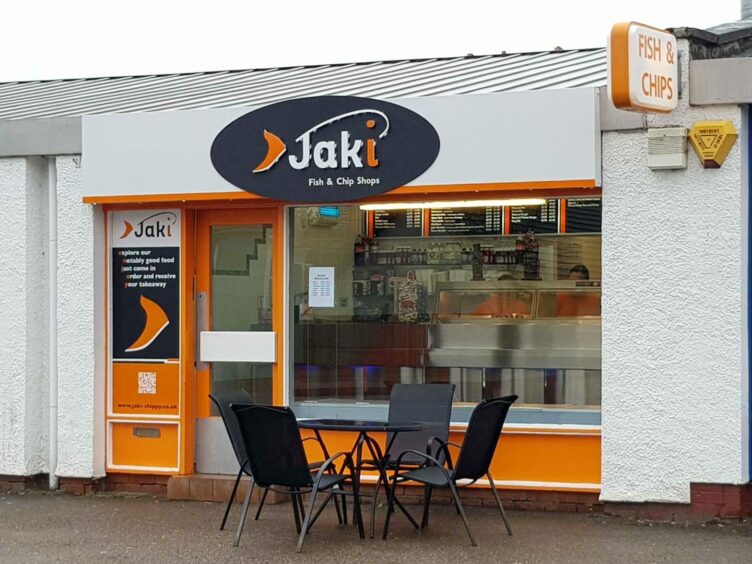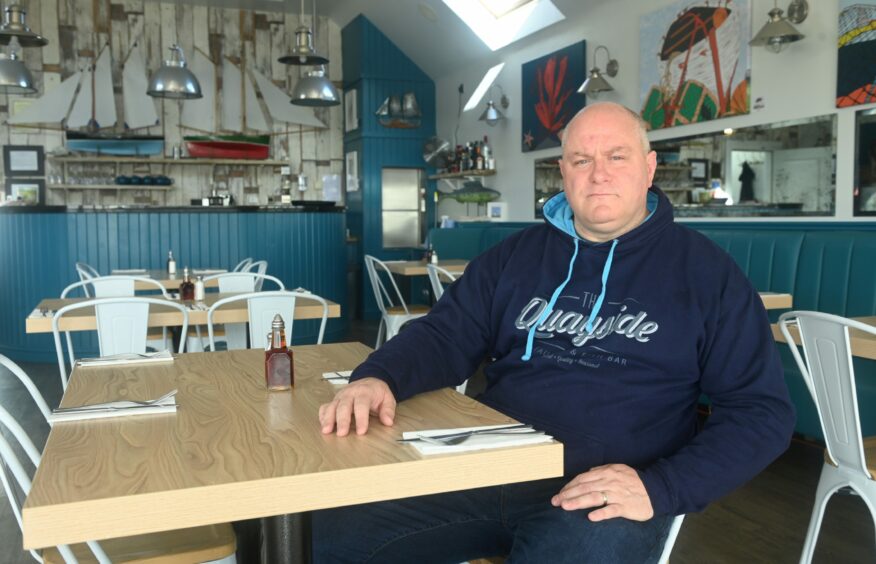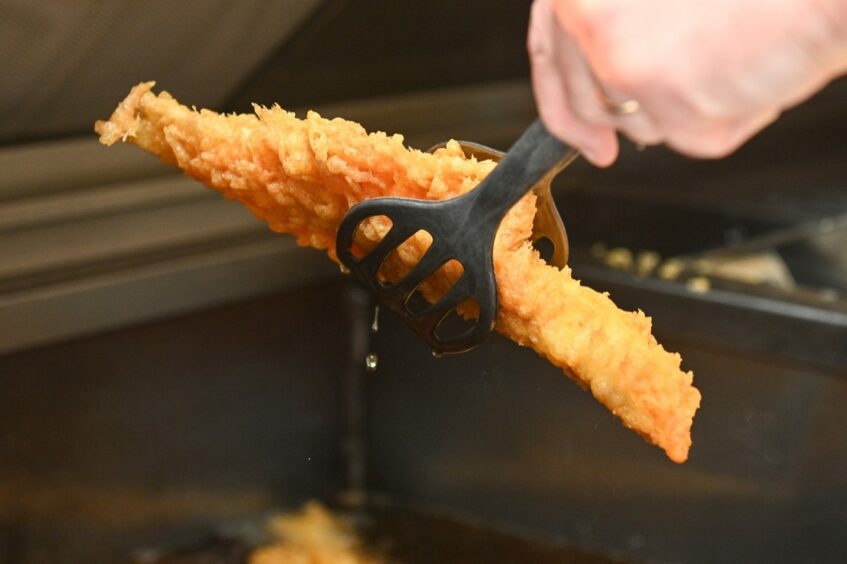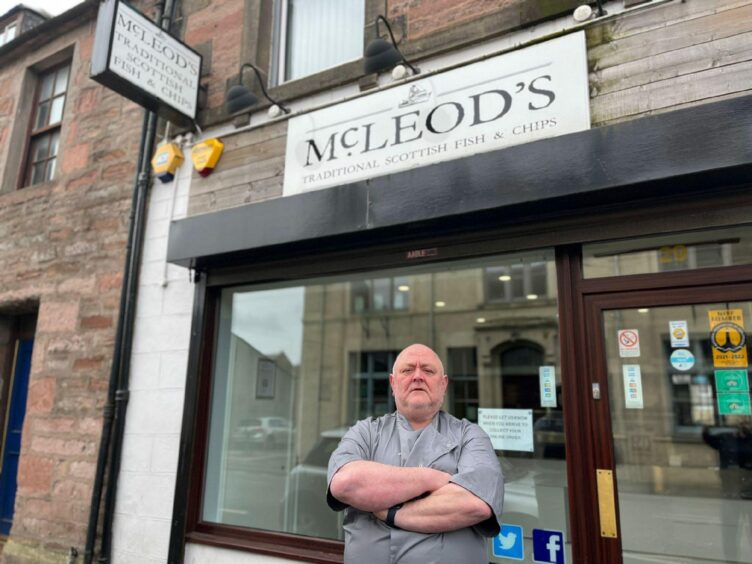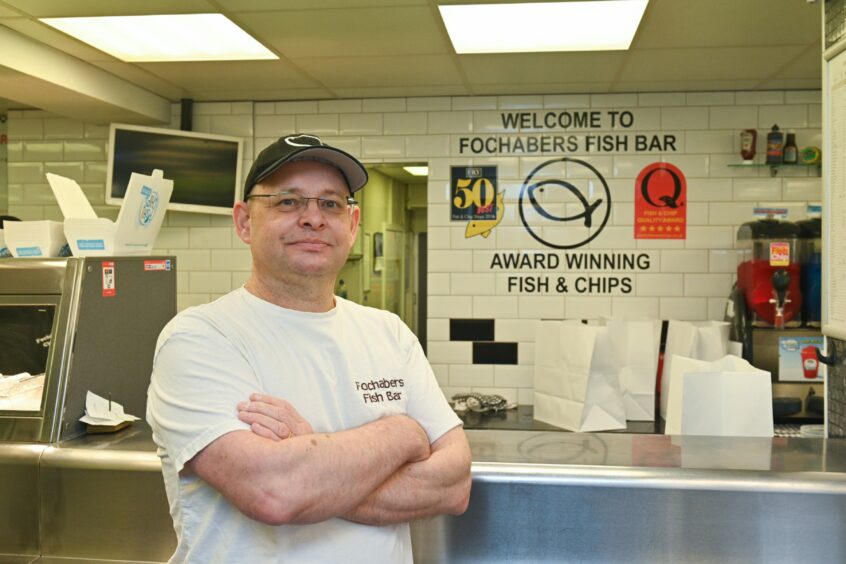Chippers across the north and north-east are under threat as food shortages and hiking costs continue to wreak havoc on businesses.
Pressure has mounted on the fish and chip industry due to the ongoing conflict between Russia and Ukraine, among other factors including Brexit.
They have had a knock-on effect on several aspects of businesses resulting in them reducing their opening hours, menus and teams.
Items that have been in short supply in the UK include white fish and sunflower oil – two key ingredients for fish and chip shop businesses.
According to the National Federation of Fish Friers, a total of 62% of fish sold in fish and chip shops is cod and 25% is haddock.
The main question is, what does this mean for the future of our local fish and chips shops?
“The past year has seen increased prices with the quality of products declining,” says Jaki Pickett, owner of Jaki Fish and Chip Shop in Muir of Ord.
“With the pandemic, businesses have reduced output which has reduced our income, with the knock-on effect that we have lost some of our menu items.”
Menu items could rise by 30%
Jaki, who lives in Fortrose, has run her fish and chip business for 15 years.
As prices for items continue to soar, the 56-year-old has spent her own money to ensure her shop is fully stocked.
Jaki says fish prices are predicted to treble in the coming months and cooking fat has increased by 48% since last year.
She has considered raising her menu items by around 30%, however, has “been reluctant to do it”.
“I have taken the extra cost of purchases from my personal income,” added Jaki.
“I do not want to pass the increases to customers but as things deteriorate, I will have no choice other than to raise prices.
“l have to monitor all areas of business and if it means there are certain payments to organisations that do not assist and support us financially, then that’s the ones who will suffer first, before my customers.”
The business owner has noticed that fish suppers are costing customers between £8.50 and £14 at other fish and chip shops in the area.
“That is just what I feel is greed,” she said. “When I have to increase prices it will be graded.
“Meaning if I still have enough people who can still afford the luxury themselves buying a chippy, then my view is to keep everything fair not to rip people off.”
Lack of white fish, chicken, pies and packaging
White fish, chicken products, fats, pies and packaging have been hard to come by over the past year, but particularly in recent months.
But Jaki believes that supermarkets are one of the main reasons chippers continue to struggle.
She says: “Supermarkets were and are purchasing the best quality and paying good money for products, so chip shops have been left to purchase sub-quality at higher prices.
“This affects business as this is seen by customers that the business is slacking when it is not. It is out of their hands. We do the best with what we receive.”
Fuel costs have a part to play
In Aberdeenshire, Quayside Gourdon owner Noel Brown has not been affected by food shortages to the same extent as Jaki.
Noel, 51, sells fish caught in Peterhead. It is, in fact, fuel prices that have made things more challenging for his business.
He said: “We haven’t felt the supply issues created by the lack of or price of Russian frozen fish, however, we are feeling the effect on price due to fuel costs for our fishing fleet.
“The fuel companies are just buying it directly instead of using our waste oil. This means supply is limited and therefore prices increase.
“It makes waste oil a valuable product that is now openly being targeted by thieves for resale.”
Noel added that cooking oil has increased 75% in price since last year and the supply of most vegetable oils has been sporadic if not limited/controlled.
Electricity and gas costs have also “rocketed”, with companies seeing an increase in excess of 50% on their bills.
“Recently Avian Bird Flu has seen the price of chicken increase by at least 30%, too. Practically all suppliers have increased all their prices.”
‘Nation’s favourite takeaway is becoming untenable’
Noel went on to say: “This has hit at the same time as VAT returning to its pre-covid level, National Insurance contributions increasing, the national minimum wage rightly increasing, but by between 4.1%-9.8%.
“Businesses are also paying back the much-needed support (bounce back loans) we received during the pandemic.
“Add onto that the customer’s reaction to the cost of living and their diminishing household income means we are scared the affordability of the nation’s favourite takeaway is becoming untenable.
“Businesses have no option but to increase prices but we feel we are reaching the point that a chipper tea is now not as an affordable treat as it once was.”
Dave McLeod, of Inverness chipper McLeod’s Fish and Chips, is also concerned that people will start opting for other styles of takeaway over a meal from their local chipper.
A cry for help
Although Dave has had no real problem getting supplies and ingredients due to the conflict between Ukraine and Russia, it has resulted in there being limits on how much of a product you can buy.
The 50-year-old said: “The main worry for me is that with the rise in the cost of living, people will have less money to spend. The one thing that will be sure to go is their fish and chip treat.
“The government is not doing enough to help the food industry. And I definitely see the issue worsening.
“Supplier price increases have forced us to increase our prices in the shop. Energy costs have doubled, staff costs are higher and the recent change in VAT means it’s more difficult for everyone.
“At the moment we are still busy but if there’s a change to that, then who knows.
“I think a fairer VAT scheme is the way forward.”
Dave employs 10 people at McLeod’s Fish and Chips, jobs that need protected, which can only be done by small businesses being supported.
“If the chippy disappears, then so do the jobs,” he added.
Fochabers Fish Bar owner Stuart Whyte agrees that cutting VAT may be a solution for the industry.
He raised his menu prices at the start of April due to hospitality VAT returning to 20%.
A fish supper at Fochabers Fish Bar will set you back £8.45 while some chippers are selling them for as much as £14 as Jaki stated.
“I have seen a big increase in gas prices and cooking oil prices and have struggled to find cooking fat,” he said.
“I can see the issue worsening because I feel we haven’t reached the peak of increases yet. Demand is still high and supply is still low.”
